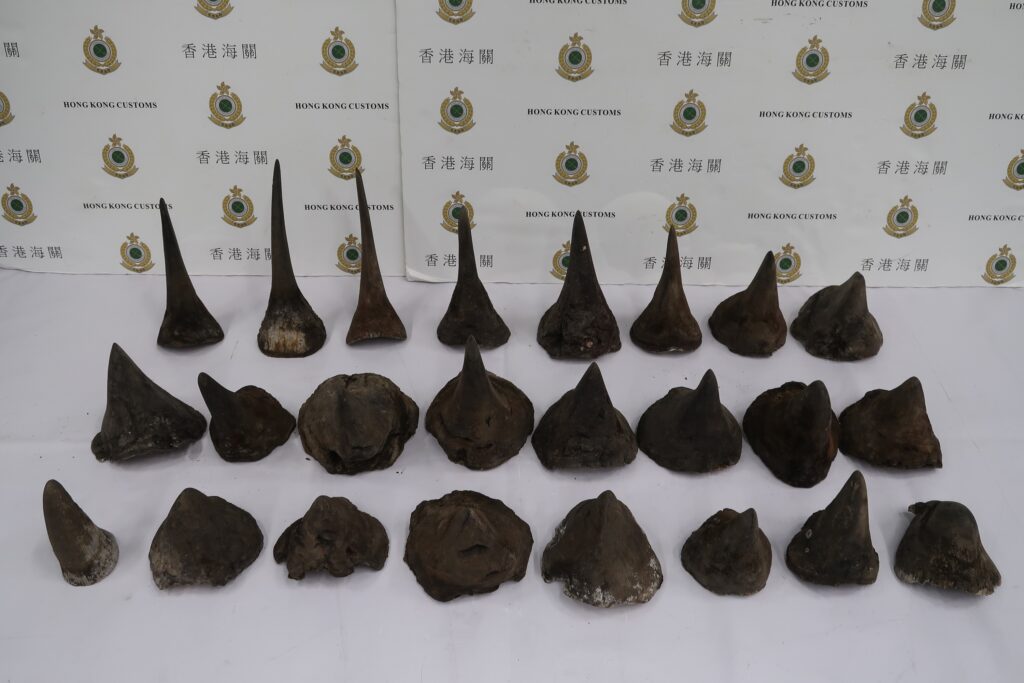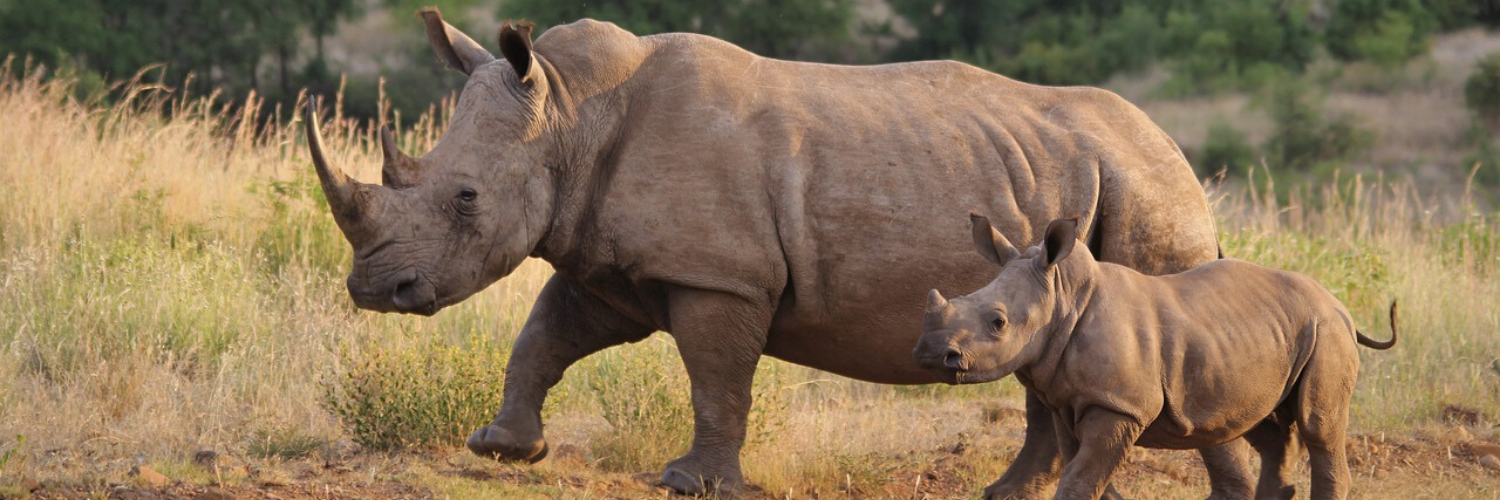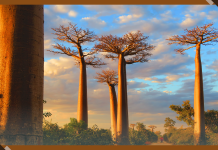Written by: Kimberly White
Rhino poaching has decreased for the fifth straight year in South Africa. The South African government has reported fewer rhinos were poached for their horns in 2019.
Home to nearly eighty percent of the world’s rhinos, South Africa is one of the countries that have been hit hardest by poachers. The country lost an average of thirteen rhinos each year from 1990 through 2007, according to the global wildlife trade monitoring network, TRAFFIC. Rhino poaching in South Africa reached an all-time high in 2014 when 1,215 rhinos were killed.
South Africa’s Department of the Environment, Forestry, and Fisheries (DEFF) reported that 594 rhinos were lost to poaching in 2019, down from 769 killed in 2018.
“A decline in poaching for five consecutive years is a reflection of the diligent work of the men and women who put their lives on the line daily to combat rhino poaching, often coming into direct contact with ruthless poachers,” said Barbara Creecy, Minister of Environment, Forestry, and Fisheries.
Most of the rhinos killed were located in Kruger National Park. DEFF reported that 2,014 incursions and poaching activities were recorded in Kruger National Park and that 327 rhinos were lost in 2019. Officials arrested 178 accused poachers last year within the Park alone. In total, 332 arrests for rhino poaching and rhino horn trafficking were made across South Africa.
“The good news is that reported poaching is down and the price of horn in Asia is down by two-thirds,” said Peter Knights, WildAid CEO. “However, part of the poaching decline may be the most accessible rhinos have gone and there are less left to poach.”
Kruger National Park houses the world’s largest population of rhinos but lacks the workforce needed to monitor the Park effectively. While arrests are being made for poaching within the Park, numerous suspects have received bail, been acquitted, or given a small fine.
“We commend South African efforts, but the courts need to be prosecuting traders more effectively because corruption in Kruger Park is still a problem. We also need increased prosecutions of smugglers in neighboring Mozambique, as well as of buyers in China and Vietnam, to make the rhinos safe,” said Knights.

Credit: WildAid
Vietnam has been a major consumer of rhino horn products. Rhino horn has become a status symbol among Vietnam’s wealthy elite and sought after for alleged health benefits. The most commonly cited reasons for rhino horn consumption are that it is a cure for cancer and other terminal diseases and can be used as an aphrodisiac to enhance libido. Some new mothers also believe it reduces fever in children while others believe it is a cure for a hangover. None of which are true. Rhino horn is primarily composed of keratin, the same protein found in human fingernails and hair, and has no unique medicinal properties.
“There is no evidence at all that any constituent of rhino horn has any medical property. Medically, it’s the same as if you were chewing your own nails,” says Dr. Rajan Amin, Senior Wildlife Biologist at the Zoological Society of London.
A 2016 survey conducted in Vietnam by WildAid, African Wildlife Foundation, and CHANGE in Vietnam found that the number of respondents who believe rhino horn has medicinal effects declined by sixty-seven percent in two years, down to just twenty-three percent from sixty-nine percent in 2014. Those who believe rhino horn can cure cancer declined by seventy-three percent, down to nine percent from thirty-four percent in 2014.
“Social and behavioural change communications are one of the most powerful tools we have in affecting lasting change for threatened wildlife species,” states Gayle Burgess, TRAFFIC’s Behavioural change Co-ordinator.
Vietnam increased penalties for wildlife crimes in 2018. However, only half of the people purchasing illegal wildlife products are aware of the updated regulations. Those convicted of breaking the newly revised law face up to fifteen years in prison and fines up to $660,000.
In an effort to raise awareness, WildAid and CHANGE launched the “Buy 1, Get 15” campaign. The campaign was timed for Tet, or Lunar New Year, when millions of Vietnamese exchange gifts. The campaign aimed to deter illegal purchases ahead of the holiday.
“Sending a gift for Tet is a beautiful Vietnamese tradition,” says Nguyen Thanh Ngoc Han, Wildlife Project Leader at CHANGE. “However, the occasion has been used to give illegal gifts of rhino horn, elephant ivory and pangolin scales, which originate from false beliefs about medicinal and spiritual benefits. We hope to remind shoppers that if you do the crime, you’ll do the time.”







